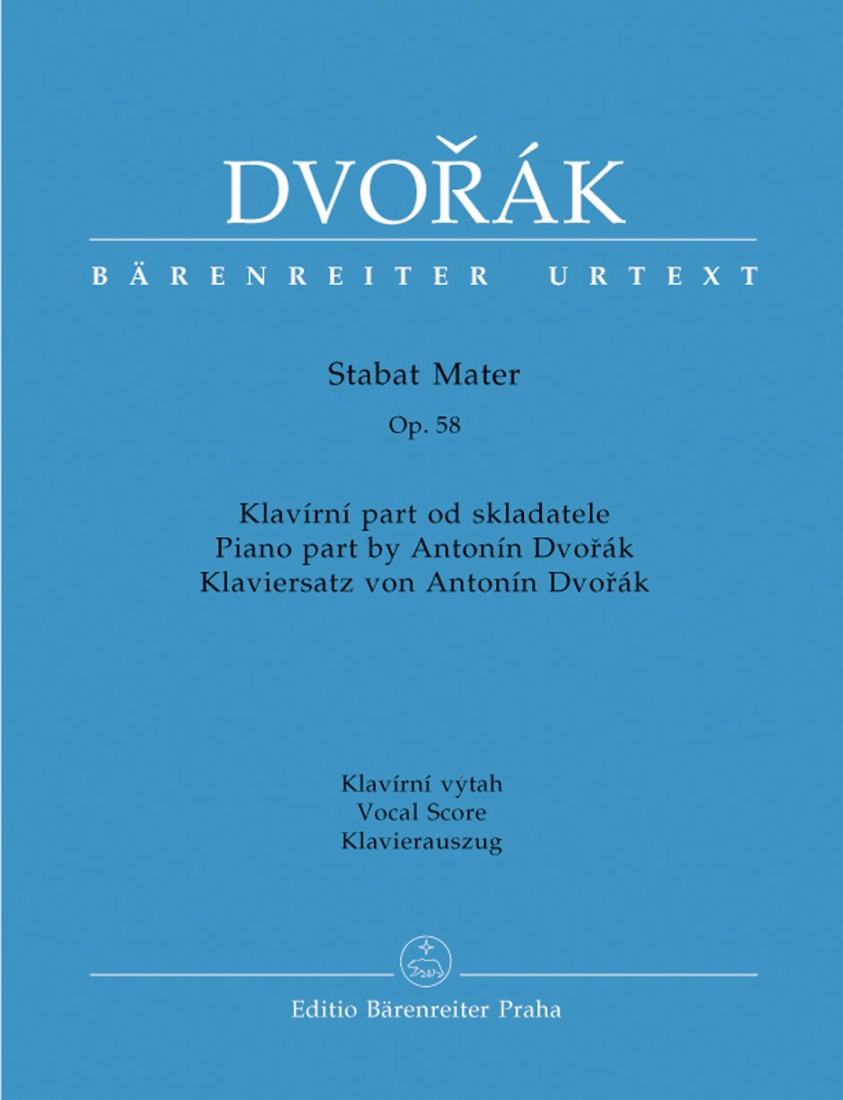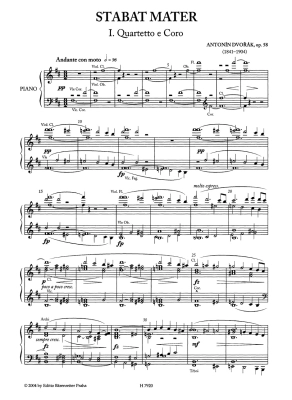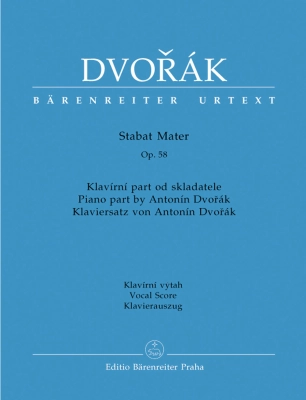Opens in a new window
Baerenreiter Verlag Stabat Mater op. 58 - Dvorak/Kachlik/Srnka - Vocal Score - Book

Additional Photos:

- Author/Composer:
- DVORAK, ANTONIN
- Instrumentation:
- SATB ACCOMP
- Model #:
- H7920
Editors: Jan Kachlik, Miroslav Srnka
Piano Part: Antonin Dvorak
Format: Book, Urtext Edition
Version: Vocal Score
The piano score of the world famous "Stabat mater", based on Dvorak's original piano version, was edited for publication by Jan Kachlik and Miroslav Srnka.
As far as possible, this Urtext edition makes use of Dvorak's distinctive piano stylisation which has survived in his own first sketch of the work from 1876. This sketch, as it turned out, once this source had become accessible, is in fact a complete, seven-movement piano version with all solo and choral parts. The degree to which the musical content of this source has been developed, and its relative completeness, suggest that the composer had originally been forced to resign himself to a performance of the work only with soloists, choir and piano. In the years of 1876-1877, however, Dvorak's career evidently took a turn for the better as he found himself increasingly in greater demand. He expanded the cantata by a further three movements and later orchestrated the entire work.
This edition serves on the one hand as a legitimate piano reduction of the existing edition of the final orchestral version. On the other hand, together with the revision commentary and facsimiled appendices, it also provides an overall picture of the original piano version for the first time, in particular, of the seven movements from 1876.
In addition to this piano score, the orchestral score, complete orchestral parts and study score are also available.
The performance material both to the version for orchestra and to the seven-movement original piano version (Versione 1876) is available on hire.
Contents:
- Preface
- I. Quartetto e Coro. Andante con moto (Stabat Mater dolorosa)
- II. Quartetto. Andante sostenuto (Quis est homo, qui non fleret)
- III. Coro. Andante con moto (Eja, Mater, fons amoris)
- IV. Basso solo e Coro. Largo (Fac, ut ardeat cor meum)
- V. Coro. Andante con moto, quasi allegretto (Tui Nati vulnerati)
- VI. Tenore solo e Coro. Andante con moto (Fac me vere tecum flere)
- VII. Coro. Largo (Virgo virginum praeclara)
- VIII. Duo. Larghetto (Fac, ut portem Christi mortem)
- IX. Alto solo. Andante maestoso (Inflammatus et accensus)
- X. Quartetto e Coro. Andante con moto (Quando corpus morietur)
- Critical Report
- List of Alternate Readings
Q & A
There are currently no questions for this product.
Reviews
There are currently no reviews for this product. Be the first to write one!





